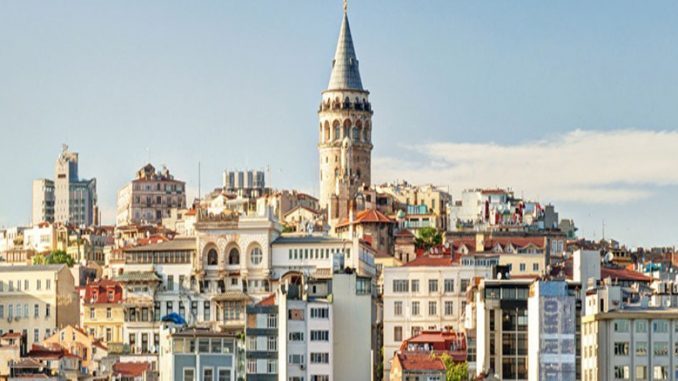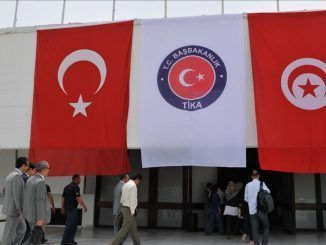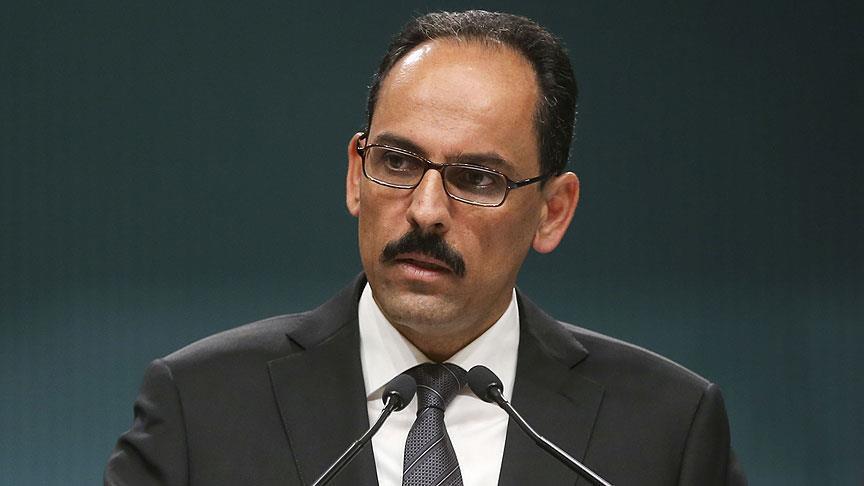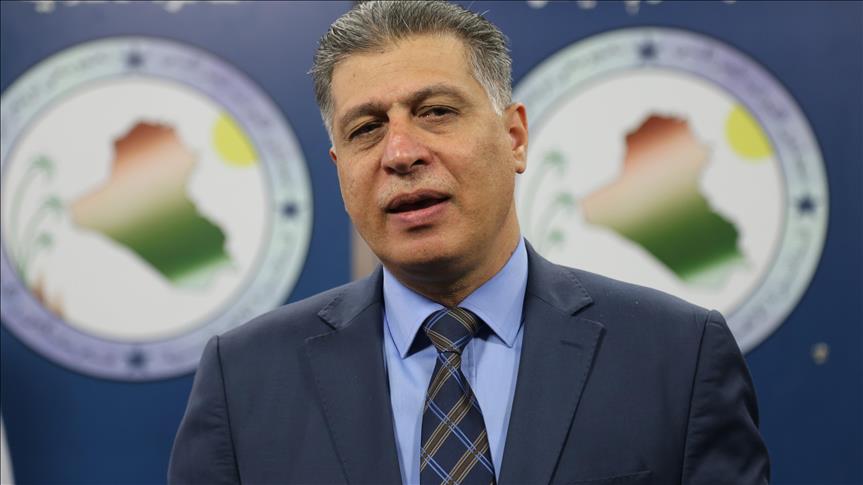
We have seen more moderate tones used by Erdogan, Yildirim to the business community, London-based economist says
After Turkey’s referendum, foreigners have appeared willing to put money back into Turkey, Timothy Ash, a senior emerging market strategist at London-based BlueBay Asset Management, said on Thursday.
Ash said in a client note that a potential recovery in the country was proving intriguing to investors
“The PMI [Purchasing Managers Index,+53.5 in May, from 51.4 the month earlier] is I think also reflected in other confidence and higher frequency economic indicators which suggest that the economic outlook is looking up,” he said.
“Perhaps this reflects optimism that with the referendum out of the way, domestic politics will stabilise and the Justice and Development [AK] Party will return to a pro-business agenda, plus also more orthodox policies from the Turkish Central Bank, an improvement in the domestic security situation (at least fewer higher profile attacks),” Ash added.
Ash said that the increase in tourism in April (18 percent year-on-year) was also a major positive surprise, even though the base was low.
“But last year tourism receipts came in at $16 billion, down from the 2014 peak of $25 billion. Any upturn on last year’s outturn would be positive result, and could add a couple of billion bucks to the current account position. The ending of Russian sanctions, plus improved security domestically seems to be helping on the tourism front,” he explained.
Ash emphasized that since the April 16 referendum, there has been a clear sense that President Recep Tayyip Erdogan wanted to get back to business, and return the agenda to the economy, which, Ash insists, was the foundation of AK Party success at least in the first decade of its rule.
It’s the economy stupid
“It’s about the economy stupid and for the AK Party it was about creating jobs, investment and growth. I think this is now seen as more important as the referendum showed that the party is likely to face a tightly fought, but now much more important 2019 election,” Ash said.
“So in this respect we have seen more moderate tones used by Erdogan, Yildirim and the cabinet to the business community, and foreign road trips to talk up the business agenda. I think giving the Turkish Central Bank a little more rope to run a more hawkish and orthodox monetary policy is part of this, as a stable/strong currency is now seen as important to broader confidence in the economy.”
Ash also mentioned the noticeable improvement in the domestic security situation in Turkey, with a marked downturn in terror attacks.
Additionally, the improvement in relations with Russia offers the prospect of more trade, tourism and investment from the country, he added.
Confidence, stability after referendum boost residential sales to foreigners
Not only did Turkish stocks rally both in the pre- and post-referendum period, but the the confidence in the economy also bore fruit for the real estate sector.
The environment of stability and confidence in the Turkish economy following the April 16 referendum, as well as citizenship and VAT exemption initiatives’ positive effects, have been reflected in the increase in residential sales to foreigners in April compared to the same period last year
Representatives of the real estate sector stated that residential sales to foreigners, which had maintained a downward trend for a while, started to increase in April with the stability and confidence in the Turkish economy following the referendum.
According to Turkish Statistical Institute (TURKSTAT) data, foreign residential sales increased by 2.7 percent to 1,624 in April compared to the same period in 2016. The total sales figure of the first four months stood at 5,894.
Sector representatives stated that the main reason for the increase in foreign residential sales is the confidence in Turkey and the Turkish economy after the referendum, adding that incentives such as citizenship rights and the value-added tax (VAT) exemption issued by the government have also supported sales.
Nazmi Durbakayım, chairman of the Istanbul Constructors Association (İNDER), told Anadolu Agency (AA) that the residence permit and VAT exception issued to foreign investors prior to April were positive steps.
Durbakayım said the incentives did not have an immediate effect on sales. “Everyone was waiting for the referendum. As a matter of fact, a month’s worth of sales was realized in 14 days when the presidential system was accepted immediately after the referendum, and it was obvious that stability would continue,” he said, highlighting that both stability and the VAT exemption for foreigners were the basis for the sales in April.
Number of foreign investors doubled
Demir İnşaat Chairman Hamit Demir said Turkey faced a treacherous terrorist attempt on July 15 last year and that the addition of the turmoil in neighboring countries to these negative developments led to a decrease in foreign residential sales, but with the referendum, this process has reversed.
“Foreigners have been waiting for the referendum results for a long time. After the referendum, foreign residential sales increased significantly. If the referendum had been held in early April, the rate of increase would have been higher,” Demir added.
Stressing that the number of foreign residential buyers increased by half after the referendum, Demir said that only the housing sector increased by half, while the number of foreign investors increased by 100 percent and doubled. “They come here. They say they want to invest in housing, real estate, industry and agriculture, which are also big investments. Foreigners are buying stability. After the referendum, they want to invest in 2017. I hear them saying, ‘It can late to invest in 2018, 2019,'” he continued.
Confidence in Turkey increases
Anatolian Side Building Contractors Association (AYİDER) Chairman Melih Tavukçuoğlu said the increase seen in sales during April shows that foreigners’ confidence in Turkey has increased.
Stating that granting citizenship rights to foreigners buying immovable properties worth over $1 million, as well as the VAT exemption, has affected sales positively, Tavukçuoğlu said there was a noticeable increase in sales after the referendum and that foreigners recognized stability.
“Real estate products in Turkey are still very profitable. The investors interested in our country see this opportunity. Gulf investors in particular feel close to Turkey. They also buy real estate to come and stay here,” Tavukçuoğlu said.
2.45 houses sold per minute in the first four months
A total of 440,226 homes were sold throughout Turkey in the first four months of the year. When the figure was analyzed according to time, it was found that 2.54 houses changed hands every minute.
Housing sales increased by 7.42 percent in the first four months of 2017 compared to the same period last year, according to the data collected from TURKSTAT.
The sector has seen an increase in diversity with big real estate projects and campaigns, and offers new opportunities for investors and those who want to become homeowners. While the long-term sales have also reflected positively in the sector, the number of houses sold countrywide in the January-April period this year rose to 440,226.
An average of 3,668.55 residential houses changed hands in Turkey during this period. The number of houses sold amounted to 152.85 per hour and 2.54 per minute.
The vast majority of sales in Turkey were realized in three large provinces according to the figures. In fact, 153,611 houses changed hands in Istanbul, Ankara and Izmir, where 34.89 percent of the residential sales were realized in the first four months of the year.
Istanbul has become the most active city in terms of residential sales. The number of houses sold in Istanbul in the January-April period stood at 76,099, accounting for 17.28 percent of Turkey’s general housing sales, followed by Ankara with 50,328 and İzmir with 27,184



